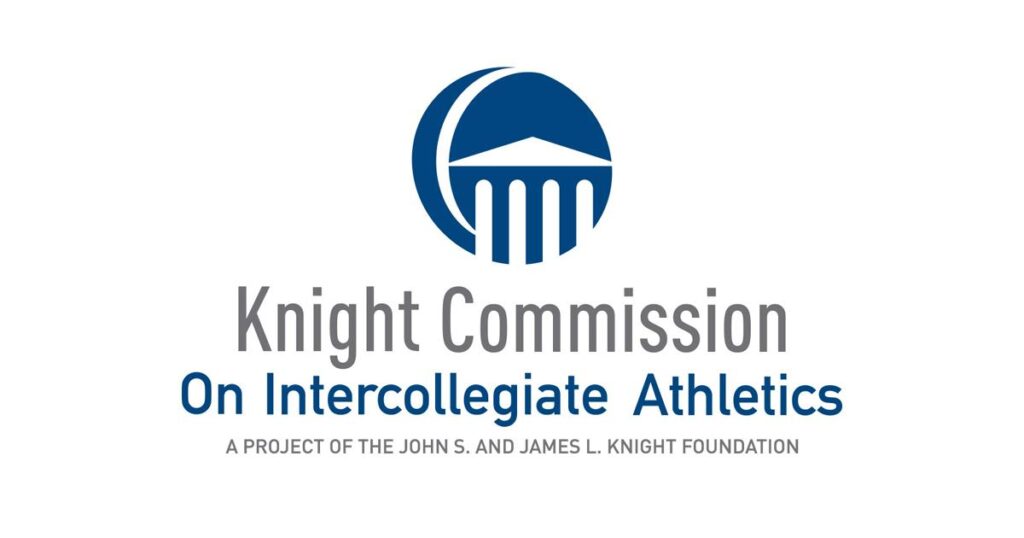College sports in the United States stand at a pivotal juncture, as recent findings from the Knight Commission and Elon University’s latest poll reveal growing uncertainty and demand for reform within the athletic landscape. The joint report highlights critical concerns ranging from athlete compensation and academic integrity to governance and equity, underscoring the urgent need for decisive action. As college athletics grapples with mounting challenges and evolving expectations, stakeholders are faced with difficult choices that could redefine the future of collegiate sports nationwide.
Knight Commission and Elon Poll Reveal Growing Concerns Over College Sports Governance
Recent findings from both the Knight Commission and Elon University’s latest poll highlight an increasing level of public skepticism toward the current leadership and structure of college athletics. Fans, students, and stakeholders alike are expressing concerns about transparency, athlete compensation, and the integrity of major collegiate sports programs. This discontent reflects a broader debate over whether the existing governance models adequately balance commercial interests with the educational missions of universities.
Key issues underscored by the reports include:
- Governance Transparency: More than 60% of respondents call for clearer decision-making processes within athletic departments and governing bodies.
- Athlete Rights & Compensation: A majority support expanded benefits and continued reforms related to Name, Image, and Likeness (NIL) regulations.
- Academic Integrity: Concerns persist about maintaining academic standards amidst rising competitiveness and revenue pressures.
| Concern | Percentage of Concerned Respondents | Recommended Action |
|---|---|---|
| Governance Transparency | 63% | Regular public reporting and stakeholder inclusion |
| Fair Athlete Compensation | 58% | Expand NIL protections and financial support |
| Academic Standards | 47% | Stricter monitoring of eligibility and performance |
Balancing Commercialization and Athlete Welfare Remains a Central Challenge
As college sports continue to generate unprecedented revenue, stakeholders face the complex task of ensuring that financial gains do not come at the expense of athlete well-being. The poll highlights a growing concern among fans, athletes, and administrators alike: while lucrative broadcasting deals and sponsorships fuel commercialization, the physical and mental health of student-athletes must remain a priority. Voices from the survey emphasize the need for transparent policies that balance lucrative opportunities with robust support systems, including access to healthcare, academic resources, and mental health services.
Key areas identified for improvement include:
- Fair compensation structures that reflect the athletes’ multifaceted contributions without compromising their amateur status
- Enhanced safety protocols to mitigate career-impacting injuries
- Comprehensive education programs on financial literacy and long-term career planning beyond sports
| Challenge | Stakeholder Concern | Suggested Solution |
|---|---|---|
| Commercial Pressures | Exploitation fears | Transparent revenue sharing |
| Mental Health | Stigma and underreporting | Confidential counseling services |
| Physical Safety | High injury rates | Improved training and medical oversight |
Experts Call for Enhanced Transparency and Stronger Athlete Representation
Leading voices in college athletics are urging for a significant overhaul in governance structures to address ongoing concerns about fairness and accountability. They emphasize that transparency in decision-making processes is crucial for restoring trust among athletes, fans, and institutions alike. Experts argue that making financial disclosures and compliance reports publicly accessible will not only deter unethical practices but also reinforce the integrity of collegiate sports programs.
Equally important is the call for stronger athlete representation in policy discussions. Current frameworks often limit player voices, leaving them underrepresented in negotiations that directly impact their welfare. Advocates propose the establishment of dedicated athlete councils with binding influence over issues such as health protocols, scholarship conditions, and compensation models. These changes, they contend, are essential for creating a more equitable and sustainable future in college sports.
- Financial Transparency: Regular public reports on funding and expenditures
- Athlete Councils: Formalized player groups with decision-making powers
- Independent Oversight: External bodies monitoring compliance and ethics
- Policy Inclusion: Athlete input integrated in governance reforms
| Aspect | Current Status | Recommended Change |
|---|---|---|
| Transparency | Limited public access | Open financial disclosures |
| Athlete Voice | Informal input only | Binding athlete councils |
| Oversight | Internal monitoring | Independent agencies |
Proposed Reforms Aim to Ensure Sustainability and Integrity in College Athletics
The latest proposals seek to address long-standing concerns about the future of college athletics by introducing measures that prioritize both financial sustainability and the ethical treatment of student-athletes. Central to these reforms are calls for more transparent revenue sharing models and strict guidelines to prevent exploitation, ensuring that the spirit of amateurism is preserved while adapting to the evolving commercial landscape. Key elements include:
- Enhanced oversight on athlete compensation and endorsement deals
- Revenue distribution reforms aimed at reducing disparities among programs
- Stricter academic standards to safeguard athletes’ long-term success
- Independent compliance bodies to enforce ethical conduct
Data from recent surveys reflecting opinions across the college sports ecosystem underscore broad support for these initiatives. Institutions and athletes alike acknowledge the need for balanced policies that simultaneously protect competitive integrity and promote financial health. The following table summarizes key stakeholder priorities highlighted in the Elon University poll:
| Stakeholder | Top Priority | Support Level (%) |
|---|---|---|
| Student-Athletes | Fair Compensation | 85% |
| Coaches | Integrity in Competition | 78% |
| Administrators | Financial Sustainability | 81% |
| Fans | Preserving Amateurism | 69% |
Final Thoughts
As college sports face mounting challenges and evolving expectations, the Knight Commission/Elon Poll highlights a pivotal moment for stakeholders nationwide. The findings underscore the urgent need for transparent reforms and thoughtful dialogue to ensure the future of collegiate athletics aligns with the values of education, fairness, and student-athlete well-being. As universities, governing bodies, and fans grapple with these complex issues, the path forward remains uncertain-but the call for change is unmistakably clear.





